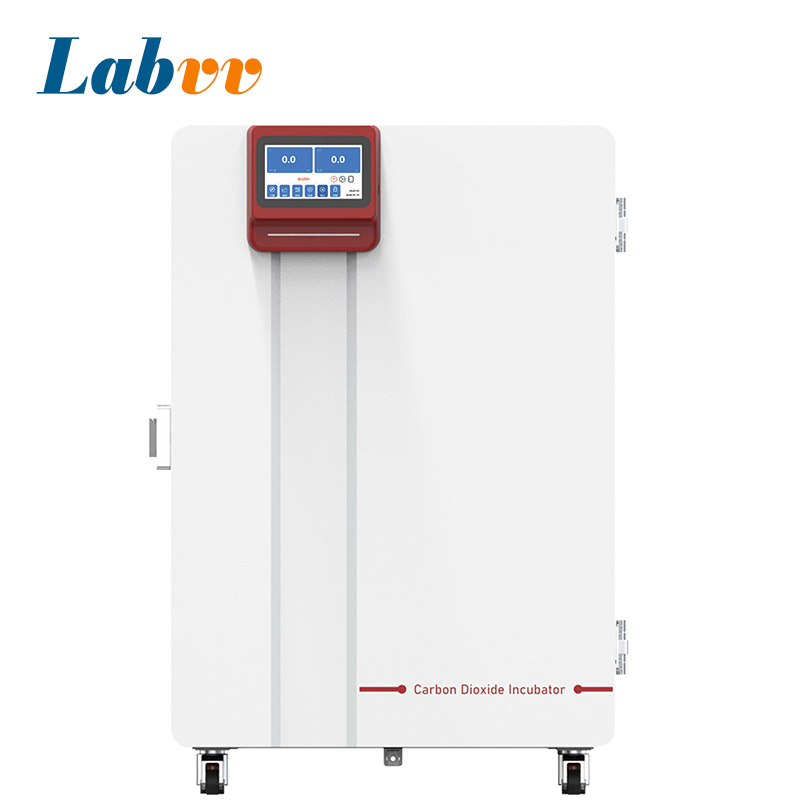CO2 Incubator Uses in Biological Research
A CO₂ incubator, also known as a cell culture incubator, is an essential device designed to simulate the physiological conditions of living organisms. By maintaining a stable 37°C temperature, a precise 5% CO₂ concentration, and a high 95% relative humidity, it provides an ideal environment for in-vitro culture of cells and tissues.
Because of these critical functions, CO2 incubator uses extend across cell biology, microbiology, tissue engineering, and reproductive medicine. It has become a fundamental tool for modern biological and medical research.
Below are the major CO₂ incubator uses in different scientific fields.
1. CO₂ Incubator Uses in Cell Biology
• Cell Culture
One of the most important CO2 incubator uses is providing a controlled environment for the growth of animal, plant, and microbial cells.
- Cancer research: Tumor cell lines require a stable physiological environment for observing cell behavior, proliferation, drug response, and molecular pathways.
- Stem cell culture: Consistent temperature, humidity, and CO₂ help maintain stem cell pluripotency, ensuring reliable cell sources for regenerative medicine and cell therapies.
• Cell-Based Experiments
For studies involving cell differentiation, apoptosis, or signal transduction, the CO₂ incubator ensures experimental stability.
For example, during neural stem cell differentiation, the incubator maintains consistent conditions, helping researchers analyze developmental stages and underlying mechanisms.
2. CO₂ Incubator Uses in Microbiology
• Culturing CO₂-Dependent Microorganisms
Some microorganisms depend on elevated CO₂ levels for optimal growth.
A typical example is Helicobacter pylori, which thrives in 5%–10% CO₂ environments. This makes CO₂ incubators essential for studying microbial physiology, pathogenesis, and antibiotic resistance.
• Microbial Fermentation
In biotechnology and industrial microbiology, CO₂ incubator uses include regulating microbial metabolism during fermentation.
Precise CO₂ control can:
- Increase fermentation efficiency
- Enhance product yield
- Improve quality of antibiotics, enzymes, and other biologically derived products
3. CO₂ Incubator Uses in Tissue Engineering
• Tissue Construction
CO₂ incubators provide ideal conditions for co-culturing seed cells with biomaterials. This environment supports cell adhesion, proliferation, and differentiation, enabling the development of engineered tissues such as artificial skin, bone, and cartilage.
• Ex-Vivo Tissue Culture
Advanced applications, such as organ-on-a-chip technology, rely heavily on CO₂ incubators.
These incubators maintain micro-physiological environments that allow miniature organ tissues to survive and function.
This enables:
- Drug screening
- Disease modeling
- Physiological research

4. CO₂ Incubator Uses in Reproductive Medicine
• Embryo Culture
In IVF and embryo transfer procedures, precise CO₂ control is essential for mimicking the natural environment of the female reproductive tract.
This helps:
- Improve embryo development
- Increase implantation success rates
- Maintain proper pH in culture media
• Sperm Handling and Culture
CO₂ incubators also provide stable conditions for sperm capacitation, function testing, and sample preparation.
These controlled conditions contribute to better outcomes in assisted reproductive technologies.
Conclusion
The range of CO2 incubator uses spans multiple scientific disciplines, including cell biology, microbiology, tissue engineering, and reproductive medicine. With its ability to precisely regulate CO₂ concentration, temperature, and humidity, the CO₂ incubator provides a stable microenvironment essential for reliable biological research. As technology continues to evolve, CO₂ incubators will remain a cornerstone of laboratory work and scientific advancement.
If you have any question, please feel free to contact us or Whatsapp Us.
To further expand your knowledge, you may also find the following topics helpful:
Related Topics You May Be Interested In
- What Is a Clinical Diagnostics Laboratory System and How Does It Work?
- How to Choose a Clinical Diagnostics System for Your Laboratory
- Incubator Uses in Laboratory: Functions, Benefits, and Common Applications
- Laboratory Incubator vs CO₂ Incubator: What’s the Difference?
- Incubator in Laboratory: Definition, Types, and How It Works
- In-Depth Guide to CO₂ Incubators: Principles, Applications, and Smart Buying Tips
